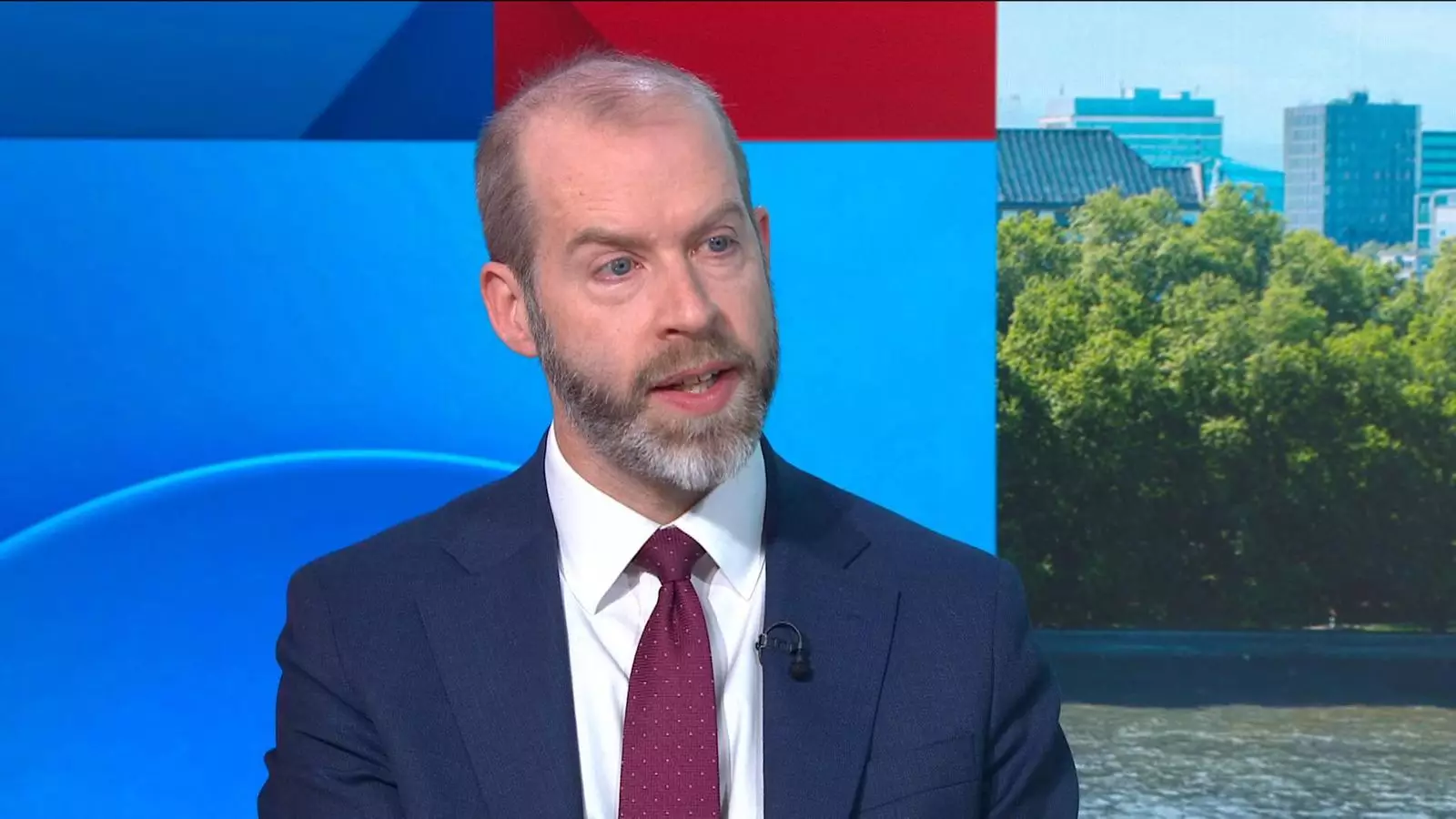The British steel industry stands on the precipice of a crisis that echoes the failures of privatization and foreign ownership. Recent developments surrounding British Steel, particularly its entanglement with Chinese company Jingye, illustrate a glaring oversight in policy-making and economic strategy. The government’s rushed intervention to take control of British Steel should not be viewed merely as an emergency measure; it is indicative of deeper systemic issues that demand scrutiny.
Steel isn’t merely metal; it is the backbone of infrastructure, the lifeblood of manufacturing, and a symbol of national pride. The U.K. has historically boasted a robust steel sector, nurturing local economies and empowering communities. However, the decision to allow a foreign entity to navigate our steel industry reveals a misguided reliance on external capital without due diligence on potential ramifications—especially when critical industries become sensitive to national interests.
The Danger of Foreign Dependency
British Steel’s trajectory under Jingye highlights the perils of allowing foreign corporations to wield power over vital national industries. The recent legislative maneuver—termed the Steel Industry (Special Measures) Bill—was not simply a bureaucratic response but a stark admission of vulnerability. Urging the government to seize control of a company owned by a foreign entity should raise alarm bells about sovereignty and economic independence.
Business Secretary Jonathan Reynolds explicitly outlined a growing hesitance toward future investment from China, emphasizing that steel is a “sensitive area” for the U.K. He recognized a “high trust bar” regarding these investments, suggesting a shift in economic strategy that must prioritize national interests over foreign profits. This is a call to action that resonates strongly with those who believe that critical industries should remain within the realm of national oversight rather than being relinquished to overseas stakeholders.
An Unfolding Crisis of Governance
The unfolding events demonstrate not only a crisis in the steel sector but a broader governance challenge. The failure of Jingye to secure necessary supplies and the subsequent collapse of trust calls into question the efficacy of privatization strategies embraced under successive governments. There is a troubling irony in the fact that the very legislation designed to rescue British Steel has become a reflection of the weaknesses in the previous government’s approach to ownership and resource allocation.
While some might herald the government’s swift actions as prudent, the underlying reality resembles more of a panic-driven response than strategic foresight. The quick passage of emergency legislation, allowing the government to assume control “using force if necessary,” reveals the lack of prepared structural frameworks for steering industries through crises. The notion that a government should resort to such measures is an uncomfortable reminder of how precarious our industrial base has become.
The Impending Shift towards Public Ownership
Amidst the chaos, calls for public ownership of British Steel have grown louder, with Reynolds admitting that it is a “likely option.” This potential pivot reflects not just the failures of privatization but advocates for a model that values sustainability and localized investment. Trusting local governance in managing essential services promotes a stronger grip on the industry’s direction and can help prevent relinquishing critical materials and jobs to uncertain foreign stakes.
Public ownership also presents an opportunity for the government to innovate and transition to new steel-making technologies. The need for substantial investment in greener steel means that the future of the industry must align with environmental goals—a revolution that can only be nurtured through committed oversight rather than the fluctuating priorities of private stakeholders.
Rethinking the Political Landscape
The criticisms from opposing figures, like shadow business secretary Andrew Griffith’s assertion that the government’s actions amount to “botched nationalization,” reveal a growing consensus that the status quo cannot be maintained. It is a clarion call for policymakers to rethink their approach to industrial strategy and foreign investment. The integration of stronger regulations around foreign ownership could serve as a preventive measure against future crises.
Operating within a framework that is neither overtly hostile to capitalism nor naively reliant on it is vital. As we navigate these tumultuous waters, the intersection of national interest and economic pragmatism will define the next chapter of the U.K.’s steel industry, forcing a reevaluation of how we perceive and regulate essential industries in an age of global economic interdependence. Let this moment prompt a serious reconsideration of how to build a resilient, secure industrial future—one that respects the delicate balance between growth, national pride, and sustainability.

